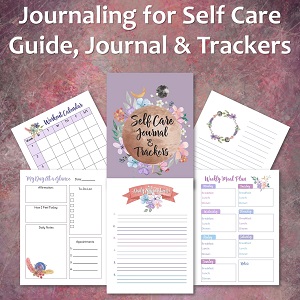 Self-care is essential for both mental and physical wellness. It fosters a healthy lifestyle, which ensures that your body functions optimally. Self-care involves self-love, self-respect, self-awareness, and self-understanding. In other words, it involves doing what you feel is right for your health.
Self-care is essential for both mental and physical wellness. It fosters a healthy lifestyle, which ensures that your body functions optimally. Self-care involves self-love, self-respect, self-awareness, and self-understanding. In other words, it involves doing what you feel is right for your health.
Although self-care may be elusive, especially if you have a very busy schedule, it is important to note that prioritizing your needs is essential for your wellness. This article explores a few steps to guide you on how to incorporate self-care into your busy schedule.
Healthy Eating
Healthy eating ensures that your body gets adequate nutrients to function at an optimal level. The nutrients reduce your vulnerability to diseases and infections by keeping your immune system strong. To ensure you eat healthy, it is important to plan your diet in a way that incorporates carbohydrates, vitamins, proteins, and other nutrients that are essential for body processes.
Avoid fries and other foods that raise the level of cholesterol in your body. Any cholesterol surplus in the body is deposited as fats, which are harmful to your body. It is important to adopt a balanced diet to avoid too little or too much of a particular nutrient in your body.
Healthy eating may also involve avoiding excessive alcohol intake. Too much alcohol has various side effects, including alcohol addiction and dehydration. Alcohol addiction may be difficult to treat, especially when you begin experiencing withdrawal symptoms. Alcoholism may affect your social and economic lifestyles.
Healthy Sleep
Getting perfect sleep should be an essential part of your daily schedule. Perfect sleep relieves stress and improves your cognitive ability by eliminating mental fatigue. Since every person is unique, it may be difficult to determine how long proper sleep should last.
However, scientists generally recommend that you should sleep 7 to 8 hours a night. You can know that you lack good sleep if you experience certain signs and symptoms, including mood swings, sleepiness, difficulty concentrating, hallucinations, memory problems, and disrupted sleep cycle.
Meditation
Meditation connects you with your inner self. It alleviates stress and gives your mind the ability to focus on useful things. Meditation also fosters self-awareness and self-compassion. When meditating, be sure to focus on the good things you have achieved in your life. This gives you encouragement that you can achieve better things. Avoid thinking about past negative events because such events tend to cause stress and distract your focus on important aspects of your life.
Proper Exercise
Physical exercise should not be too light or too heavy, and it should be done on a regular basis. Exercising ensures proper self-care by keeping your circulatory system efficient. When the blood in your body flows optimally, nutrients and oxygen are properly transported in the body to keep you healthy.
Proper exercises also boost your cognitive ability by ensuring increased blood supply to the brain. Additionally, it keeps your body healthy by toning your muscles and burning fat deposits in your body. To make the results of regular exercise even better, accompany your workout plan with a proper diet.
In a nutshell, it is important to understand that you may not live to care for your loved ones if you fail to care for yourself. You need to avoid conforming to environmental and situational demands that compromise your self-care. Instead, think and act in a way that promotes self-care.




